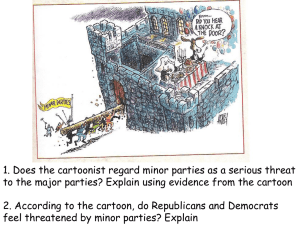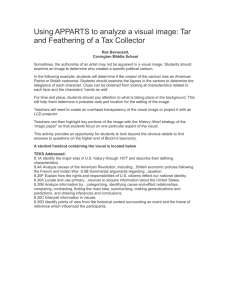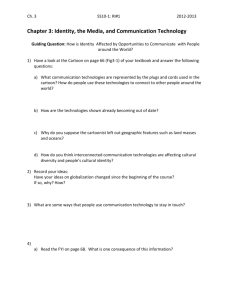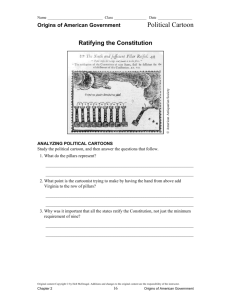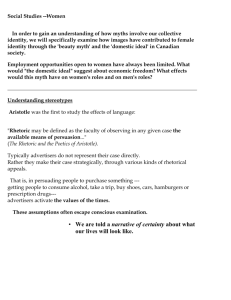THE CONSTITUTION Key Constitutional Principles
advertisement
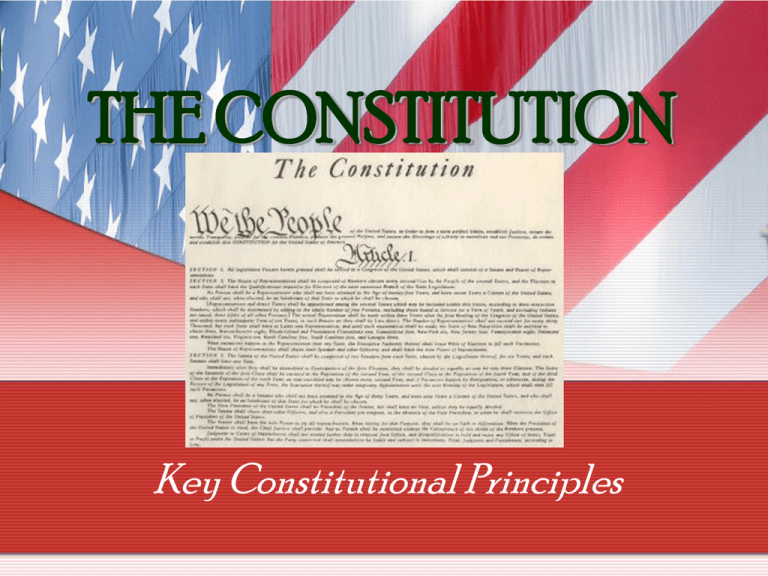
THE CONSTITUTION Key Constitutional Principles Concept 1: Separation of Powers A way of dividing power among three branches of government in which members of the House of Representatives, the Senate, the president, and the federal courts are selected by and responsible to different constituencies. Concept 2: Checks and Balances A government structure that gives each of the three branches of government some degree of oversight and control over the actions of the others Concept 3: Federalism System of government in which power is divided between the national government and the state governments and in which independent states are bound together under one national government Concept 4: Limited Government A type of government in which its functions and powers are written, limited, and restricted by law to protect the citizenry. National Government • May not violate the Bill of Rights • May not impose export taxes among states • May not use money from the Treasury without the passage and approval of an appropriations bill • May not change state boundaries State Government • May not enter into treaties with other countries • May not print money • May not tax imports or exports • May not Impair obligations of contracts • May not suspend a person's rights without due process Concept 5: Individual Rights/Liberties The Bill of Rights (first 10 Amendments) was added to protect the rights of individuals. This was to ensure the government did not pass or enforce any law that could severely limit the rights of people. Concept 6: Judicial Review Powers are granted to the judiciary to review and interpret laws. They may uphold or overturn legislation. Concept 7: Popular Sovereignty This concept provides that the people vote for their government. They elect candidates and decide the issues. Cartoon #1 Which constitutional principle is represented in this cartoon? What is the message the cartoonist is trying to get across? What symbols does the cartoonist use? Cartoon #2 Which constitutional principle is represented in this cartoon? What is the message the cartoonist is trying to get across? What symbols does the cartoonist use? Cartoon #3 Which constitutional principle is represented in this cartoon? What is the message the cartoonist is trying to get across? What symbols does the cartoonist use? Cartoon #4 Which constitutional principle is represented in this cartoon? What is the message the cartoonist is trying to get across? What symbols does the cartoonist use? Cartoon #5 Which constitutional principle is represented in this cartoon? What is the message the cartoonist is trying to get across? What symbols does the cartoonist use? Cartoon #6 Which constitutional principle is represented in this cartoon? What is the message the cartoonist is trying to get across? What symbols does the cartoonist use? Cartoon #7 Which constitutional principle is represented in this cartoon? What is the message the cartoonist is trying to get across? What symbols does the cartoonist use? Group Activity In your group, make a poster about the assigned principle of government. Be sure to include: -At least 5 pictures -The definition of your principle -At least two examples -List at least ONE other country that has a similar (or the same) principle in their government -Rank your principle in comparison to the other five principles of government
